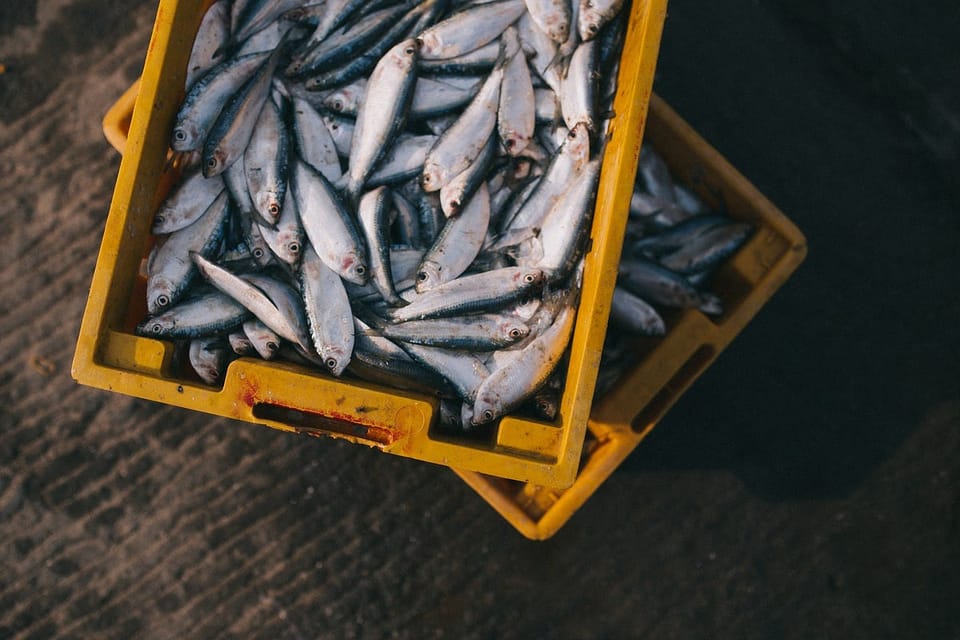On Malls And Ponds

I should have known something was wrong when he asked to play with my bow and arrow set.
He didn’t really ask, per se, but more of a demand.
“Zat bow work?” my father asked.
“Far as I know,” I replied.
I might have been ten years old at the time, and it was a rare Saturday when I didn’t have to perform manual labor. Many fathers watch college football on Saturday. I watch football on Saturday. I like to watch my Rambling Wrecks and my Spartans. One gave me permission to think, and the other permitted me to write whatever the hell I want as a professional, within reason and ethical standards, of course.
My dad liked to watch me work.
This work consisted of everything from rudimentary carpentry to masonry to gardening. He was the brains of the operations, and I was the child brawn. In that world, child labor was not a dirty word. Dad would give the grand scheme and the necessary instructions to enact and instruct and oversee its execution.
By me.
Not on this day. He had plans that employed my bow and arrow set gifted to me the previous Christmas. As I handed it to him, replete with the restringing we had done with contractor’s twine, he tested it deftly and said, “The almanac says it’s a good night tonight, and I can’t get any good fish at the store. We’re goin’ fishin’.”
I felt excitement at this notion because our fishing poles seemed to be collecting a bit more dust than my kid heart would have liked.
“Get all the milk jugs from the porch and put ’em in the car,” Dad instructed.
“What about the fishing poles,” I offered.
“Naw. We ain’t gonna need ’em. Just the jugs, the twine, and bring my tackle box.”
There’s a story comes to mind that I frequently heard in my youth about a man we’ll call for the sake of this tale Findley Cate.
He held a general reputation as a good for nothing but was somewhat of a handyman and seemed to come when called, like a good dog, so folks didn’t think ill of him. Findley had taken to putting large coolers in his pickup truck and sold fresh fish out of them that he’d already cleaned and gutted.
The old boy was making a killing, too.
This bit of news caught the local sheriff’s attention, who found himself concerned about Cate’s newfound prosperity, and he had a gut feeling that something wasn’t right about Findley’s methodology.
You know how nosy men of the law can be.
Sometimes that’s a good and fair thing, as well as a public service. For Findley, it was a right pain in the ass.
The sheriff would buy fish and give ole Findley the stink eye. This interaction continued for much longer than was necessary, and one day things came to a head.
“It looks like you’ve gotten real good about gettin’ your hands on fish, son,” the sheriff said to Findley.
“I’ve learned a thing or two. But I have to give credit to my helpers. They do most of the hard work. I just do the selling part.”
“Tell me more about your helpers,” the sheriff inquired.
“Oh, hell no,” Findley responded, “To meet them, you’re just gonna have to go fishing with me.”
“Where and when,” the sheriff shot back, knowing that he was on to something.
“Well, according to the almanac, I think tomorrow’s going to be a good day. Meet me at Katchimak Lake at around 4:30.”
“AM or PM?”
“What do you think? Nobody wants yesterday’s fish! Morning time, of course. Before it gets all light.”
As the sheriff pulled away in his cruiser with the heavy iced bag of lake trout, he had to admit; those were some of the best fish he’d ever eaten in his life.
The next morning, Findley was where anticipated, a rowboat, three large netted bags, a canvas sack, and a handheld net in tow.
“Where is everybody?” he asked Findley.
“You’ll see ’em soon enough. Right now, we gotta get in the boat.” Cate directed the sheriff to the other open seat.
They shoved off into the center of the lake, the early sound of crickets on the bank, and the bullfrogs looking for a morning meal. It was a heavenly way to begin the morning, a solace mixed with the cool misty air and the wetness that hung, bringing together the spirit of a mariner and a fisherman.
It was the hissing that caught his attention, stunning the sheriff out of his daydream.
Then the kerplop.
And next the kerbloom!
A mushroom-shaped plume of water rose from the surface. Fish began slowly rising to the top as Findley tucked a net bag under his arm and clicked the beaten Zippo lighter in his hand again.
“Y-You can’t do this!” the sheriff blurted, stunned, “This is illegal!”
As he became slowly aware of the sparking, fizzing, hissing stick of dynamite shoved into his paw, Findley said, “Well, sheriff? You gonna sit here and yap at me, or are ya gonna fish?”
This was precisely how I felt as I heard my father instruct, “You wanna make sure that you have the twine looped around the handle of the jugs. It does no good if they just float away, unless you wanna be the one jumping in after it. And make sure those lids are tight! They hafta float.”
“Is this legal?” I asked my father.
“Not in the least little bit. That’s why your mummy made us cocoa, and we’re gonna hide out in the woods.”
“What is this thing we’re making?”
“Called a trot line. We gonna shoot that twine across the lake with your bow and arrow, drag these jugs across. After you bait ’em all of course. That’s why each jug has two hooks hanging from it. Careful with that, there…”
I learned two things that night. It’s challenging to find a piece of contractor twine in the moonlight, and my father couldn’t shoot a bow and arrow for shit.
One would have thought the contraption would be easier to see as the lake lay in a gully next to the busy interstate; however, the treeline blocked all visible light from the highway above. We also weren’t helped by the fact my father had spray-painted the jugs a fancy camouflage brown.
We sat a short distance within the treeline, slightly elevated, but able to watch the line without obstruction in the moonlight. I was wrapped in my father’s jacket against the chill in the air. I had underdressed for the occasion as he had overdressed. We sipped cocoa in the cool darkness as a local policeman patrolled the area, driving through in his cruiser right in front of us, oblivious to us and our trot line in the lake.
“Are you sure there’s fish in there?” I asked in a whisper.
“Yep,” my father answered, taking a moment to blow on his cup, “Fish and Feather stocks this pond pretty regular, just like that lake at the graveyard.”
“Can we get in trouble for this?” I inquired again, snuggling into the down aviator jacket. It was the one my father wore while stationed with the US Air Force in Greenland. A few decades later, I would have one of my own as an Air Force officer in my own right.
“Well, if we get caught, he’s local, not Fish and Feather, so we just call your auntie and she’ll get us out of it. She pretty much runs City Hall anyway.”
He heeled out a divot in the pine straw-covered earth and struck a Winston. Looking back, it was more likely to warm his hands. I remember how secure I felt inside that jacket at the moment. I wasn’t wearing it like a regular coat, but more like I was inside a tipi, and my head was out the center hole.
There are strange moments when you feel love, but that was one of them. Now, as a father myself, I fully understand what it might have meant from his side. I have wrapped my own children in clothing articles just like he did, and I know how full one feels as a parent like they are swaddling an object of pure gold.
“We’re lookin’ for three of those jugs to drop lower than the others,” he stated flatly, crushing out the cigarette butt in the divot and scraping the dirt back over it. “Three means we ain’t wasted our time, and there should be something there.”
We might have waited in the dark silence with the sounds of nature alive around us for another hour. By then, five of the ten jugs were lower than the others.
“Time to get to work, my boy,” Dad said, slowly rising from his position and heading to the lake. My job was to trek around to the other side again and loosen the twine we had tied off on the other side of the lake.
We probably got around ten or maybe a dozen fish that night. I remember my task was to scale them as my father taught me how to gut and fillet them.
Most of them went in the freezer, but almost half went into a fish fry, which was a national pastime to my father. He never met a fish fry he didn’t like. Well, except for one. But when everyone got sick, he pointed out he wasn’t responsible for the source of the fish, or the frying. Probably why he liked to do it himself.
That was the last time we fished in that lake. My guess is a tactical decision to avoid the authorities. In 1999, the state’s largest shopping mall was built in that very location. For over ten years, I was convinced that the lake was gone due to the mall. I told many people my beliefs on this. But since none of them knew about the lake to begin with, no one ever corrected me.
My father is buried a few hundred feet from the graveyard fishing pond that we admired and visited so often as a child, some twenty miles away.
I discovered that the city had turned this area around the mall into a park with a five-mile walking trail seven years ago. Naturally, I had assumed the lake at Ivy Creek was gone. We saw a giant owl that day. As I rounded a corner of the walking trail, I saw the lake that seemed cleaner and more familiar.
The lake had remained in the same spot all of these years, and I had been oblivious to it. Some of my history remained!
A younger man was sitting in a lawn chair with his two children, fishing in the lake. They were seated in the shadow of his import SUV, and an Atlanta Braves hat perched prominently on his head. He smiled as I got closer to them.
“How’s the fishin’ today?” I asked him.
“Well, we caught a couple already,” he answered, “But I reckon there’s never a bad time to fish.”
“I’d be inclined to agree with that,” I responded.
“So I imagine the fishing’s been good here for you, too?” he asked me.
“You have no idea,” I answered with a grin.
And as I reached into the pocket of my own Air Force jacket, I craved a cup of hot chocolate.
